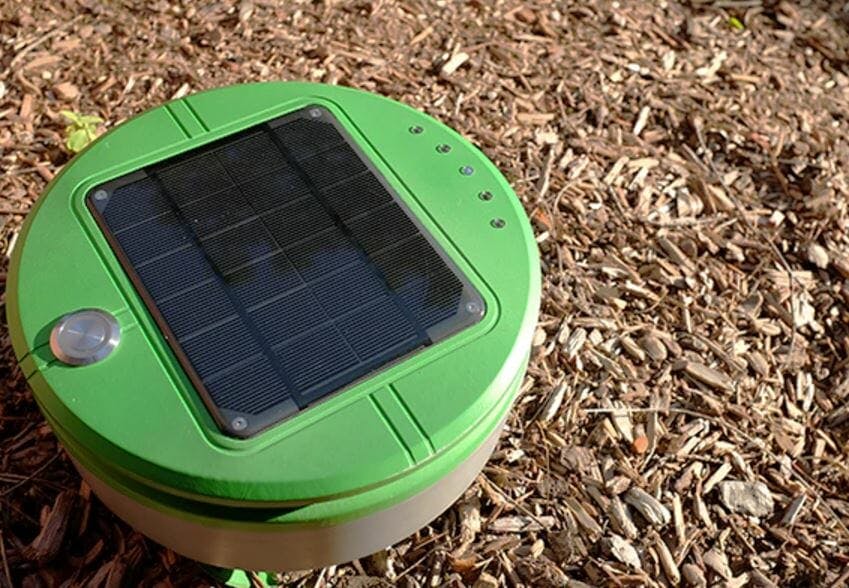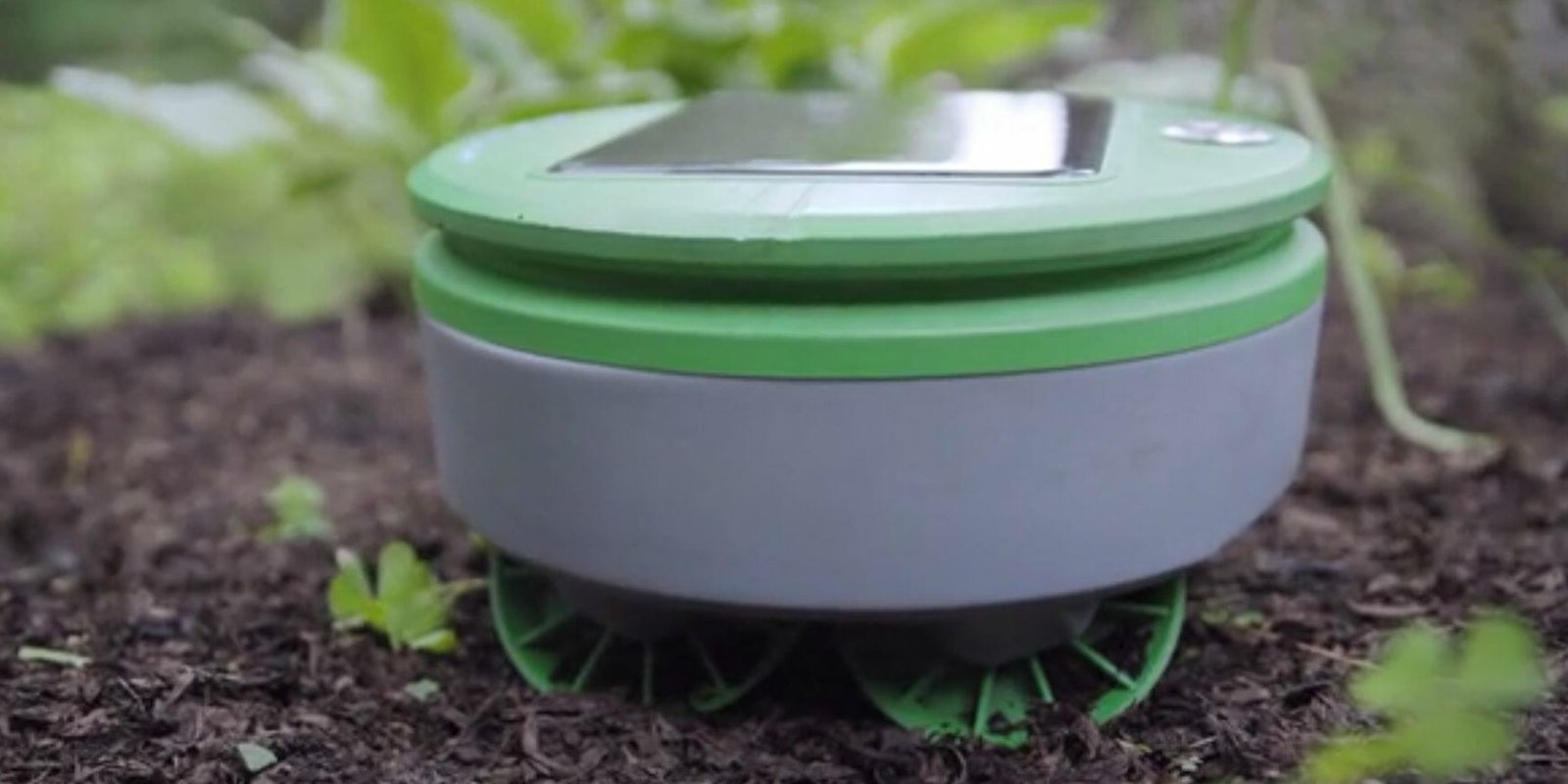The inventors of the Roomba are taking their self-driving robot to the backyard with a solar-powered weeding machine called Tertill.
Franklin Robotics launched a Kickstarter campaign for its newest product this week. Unlike the carpet-cleaning Roomba, the Tertill is meant to scavenge your lawn and use its string trimmer to take out unwanted growth.

The 2.5-pound cylinder is supposed to wander around your garden every day, but you won’t have to worry about charging or replacing its batteries—the Tertill is powered entirely by the sun. Its solar cells convert sunlight into electricity, which it stores in its battery. When it’s cloudy, the robot moves around less often, and goes into overdrive when the sun is out. The Tertill is also said to be waterproof, so you shouldn’t have to worry if its cutting away during a storm.

Its method for determining what is a plant and what’s a weed is very simple: If it fits under the robot, it is a weed. Franklin Robotics includes “collars” that go around plants so flowers that are still growing don’t get mistaken for weeds. You will also need a short barrier around your garden to keep the four-wheel drive Tertill from wandering off. That can come in the form of a fence, edging, or a wooden border.
To keep the price down, Franklin uses a series of low-cost sensors to determine the height of a plant. Once it’s found a weed, it will cut it from the ground using a spinning string trimmer.
Tertill costs $250 on Kickstarter, or $449 for two, which Franklin Robotics admits is unnecessary unless you have a massive yard. The company is already nearing its $120,000 goal less than a week into its campaign and expects to ship early next year.


